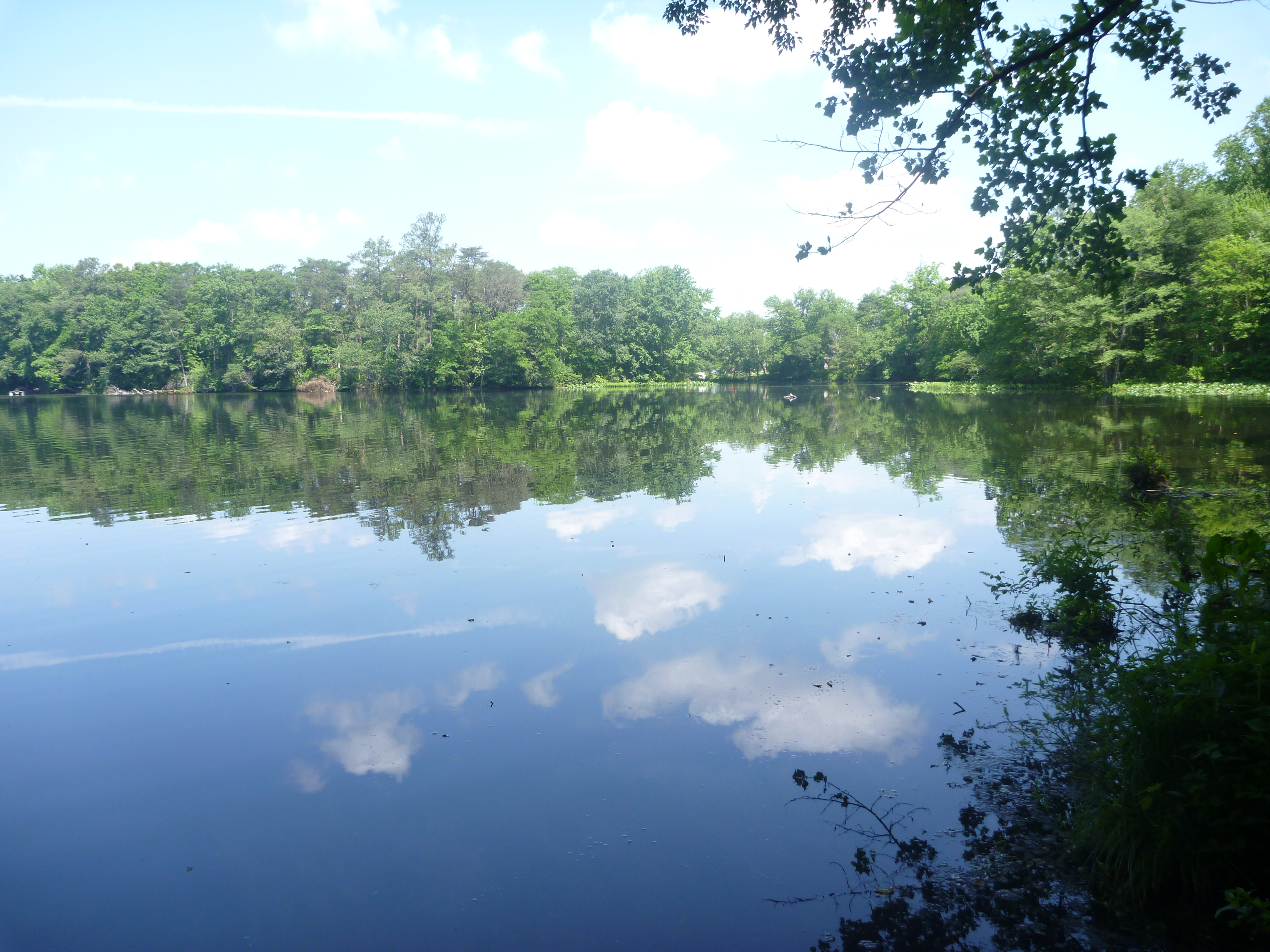DNREC Division of Fish & Wildlife begins treating downstate ponds for nuisance aquatic weeds
Department of Natural Resources and Environmental Control | Division of Fish and Wildlife | Date Posted: Thursday, May 23, 2019
Department of Natural Resources and Environmental Control | Division of Fish and Wildlife | Date Posted: Thursday, May 23, 2019

DOVER – With inland water temperatures rising and aquatic plants emerging, DNREC’s Division of Fish & Wildlife has begun annual treatment of select downstate public ponds for nuisance aquatic weeds. These nuisance weeds can overtake ponds and crowd out beneficial plant species and prevent fishing and boating access. Blairs Pond and Tub Mill Pond near Milford are being treated this year. Signs are posted at the boat ramp area of each pond on the day of treatment.
Hydrilla, a non-native, invasive plant that likely entered the state through the aquarium trade, is the primary target of the treatments through application of Sonar, an EPA-registered and approved aquatic herbicide containing fluridone. Sonar has been used in Delaware since the 1980s, and has proven environmentally-compatible and effective for controlling hydrilla. Sonar does not pose any threat to wildlife, including fish, nor are there any restrictions on fishing or fish consumption as a result of these treatments.
The only special precaution is a 30-day restriction on water use from the ponds from the date of treatment. Residents and farmers alongside the ponds and those directly downstream should not use pond water to irrigate their gardens, yards, or agricultural lands for 30 days following treatment to avoid possible damage to their plantings.
An annual permit from DNREC’s Division of Water is required to withdraw water from Delaware’s freshwater ponds, with holders of these permits receiving advanced notice of the upcoming pond treatments. To obtain an irrigation permit from the Division of Water, please call Bill Cocke, Water Allocation Section, at 302-739-9945. More information can be found on the DNREC website at Water Allocation.
Only state-managed ponds with public angler access are treated since the treatments are funded through the Federal Sport Fish Restoration Program and state fishing license funds. While the Division of Fish & Wildlife does not treat private ponds, it can provide a list of businesses licensed in Delaware to treat nuisance aquatic weeds.
To prevent the spread of invasive aquatic vegetation to other ponds and waterways, anglers and boaters are encouraged to remove all hydrilla and other aquatic plants from their boats, trailers, and gear before leaving the boat ramp area.
For more information on nuisance aquatic weed treatment of state-managed ponds, please call the DNREC Division of Fish & Wildlife Fisheries Section at 302-739-9914.
Follow the Division of Fish & Wildlife on Facebook, https://www.facebook.com/DelawareFishWildlife.
Contact: Joanna Wilson, DNREC Public Affairs, 302-739-9902
Vol. 49, No. 133
Related Topics: herbicide, hydrilla, invasive aquatic vegetation, outdoors and recreation, permitting and regulation, ponds, Sonar, treatment
Keep up to date by receiving a daily digest email, around noon, of current news release posts from state agencies on news.delaware.gov.
Here you can subscribe to future news updates.
Department of Natural Resources and Environmental Control | Division of Fish and Wildlife | Date Posted: Thursday, May 23, 2019

DOVER – With inland water temperatures rising and aquatic plants emerging, DNREC’s Division of Fish & Wildlife has begun annual treatment of select downstate public ponds for nuisance aquatic weeds. These nuisance weeds can overtake ponds and crowd out beneficial plant species and prevent fishing and boating access. Blairs Pond and Tub Mill Pond near Milford are being treated this year. Signs are posted at the boat ramp area of each pond on the day of treatment.
Hydrilla, a non-native, invasive plant that likely entered the state through the aquarium trade, is the primary target of the treatments through application of Sonar, an EPA-registered and approved aquatic herbicide containing fluridone. Sonar has been used in Delaware since the 1980s, and has proven environmentally-compatible and effective for controlling hydrilla. Sonar does not pose any threat to wildlife, including fish, nor are there any restrictions on fishing or fish consumption as a result of these treatments.
The only special precaution is a 30-day restriction on water use from the ponds from the date of treatment. Residents and farmers alongside the ponds and those directly downstream should not use pond water to irrigate their gardens, yards, or agricultural lands for 30 days following treatment to avoid possible damage to their plantings.
An annual permit from DNREC’s Division of Water is required to withdraw water from Delaware’s freshwater ponds, with holders of these permits receiving advanced notice of the upcoming pond treatments. To obtain an irrigation permit from the Division of Water, please call Bill Cocke, Water Allocation Section, at 302-739-9945. More information can be found on the DNREC website at Water Allocation.
Only state-managed ponds with public angler access are treated since the treatments are funded through the Federal Sport Fish Restoration Program and state fishing license funds. While the Division of Fish & Wildlife does not treat private ponds, it can provide a list of businesses licensed in Delaware to treat nuisance aquatic weeds.
To prevent the spread of invasive aquatic vegetation to other ponds and waterways, anglers and boaters are encouraged to remove all hydrilla and other aquatic plants from their boats, trailers, and gear before leaving the boat ramp area.
For more information on nuisance aquatic weed treatment of state-managed ponds, please call the DNREC Division of Fish & Wildlife Fisheries Section at 302-739-9914.
Follow the Division of Fish & Wildlife on Facebook, https://www.facebook.com/DelawareFishWildlife.
Contact: Joanna Wilson, DNREC Public Affairs, 302-739-9902
Vol. 49, No. 133
Related Topics: herbicide, hydrilla, invasive aquatic vegetation, outdoors and recreation, permitting and regulation, ponds, Sonar, treatment
Keep up to date by receiving a daily digest email, around noon, of current news release posts from state agencies on news.delaware.gov.
Here you can subscribe to future news updates.